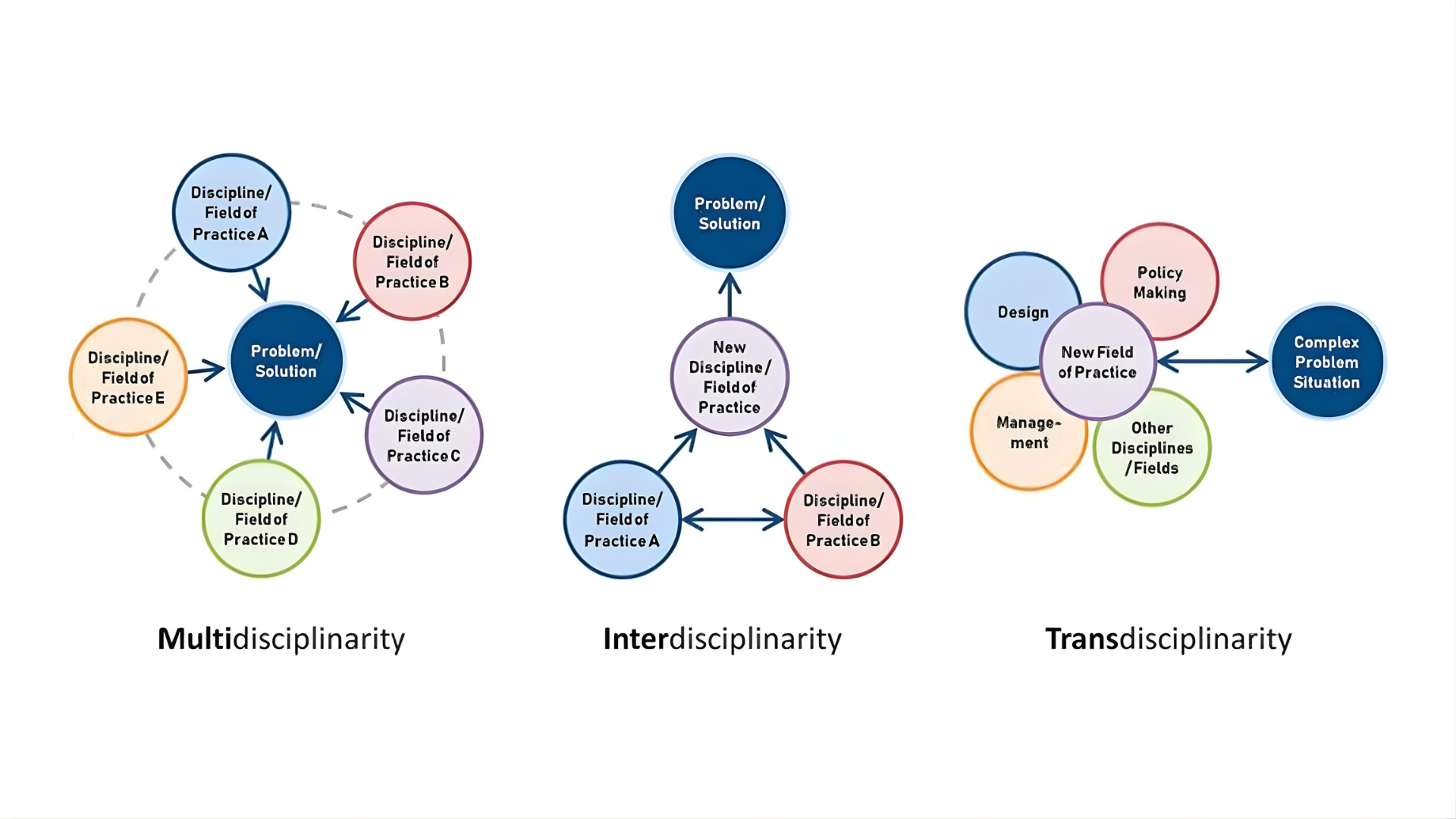Established in 2017, TD Research is part of the internationally acclaimed, Transdisciplinary School (TD) and is the focal point of transdisciplinary research at UTS, undertaking research for real-world impact.
We are driven to tackle problems that matter by integrating and mixing expertise from diverse academic disciplines with expertise from professions, policy and lived experiences. Our approach combines creativity, futuring, reflexivity and systems thinking to evaluate complex challenges and to propose new ways forward-helping things evolve, change course and grow.
We are pioneers in a rapidly evolving landscape – trusted leaders in all things transdisciplinarity. Operating across UTS and beyond, we build bridges between faculties, institutes and organisations, both local and global, forging powerful partnerships and collaborations that shape bold, future-focused and sustainable solutions.
We strive to make real-world impact and recognise that to tackle problems that matter, we must draw on expertise across academic disciplines, non-academic professions and diverse stakeholder groups, including Industry, First Nation’s and Community members – incorporating their expertise and perspectives in the research process. We invite you to join us in grappling and navigating these challenges.
Why TD research?
Transdisciplinary (TD) research aims to address the root causes of challenges, rather than just their discrete symptoms, through applying open, complex, dynamic and networking lenses. This is directly in line with the OECD's 2020 Science, Technology and Industry Policy Paper, Addressing societal challenges using transdisciplinary research. TD Research embodies collaboration, curiosity and creativity towards shared outcomes. In our unique approach to research, defining the challenge being tackled is crucial – we do so by taking a human-centred approach to build practical and theoretical knowledge together, for novel approaches in diverse situations.
The future of research
We live and work in a world filled with diverse and complex challenges. Many of these challenges, both present and future, require new collaborative and innovative approaches to help navigate. This is where TD Research comes into its own. Mainstream or more ‘traditional’ and "academic" ways of problem solving such as multidisciplinary and interdisciplinary approaches, are often insufficient for these types of issues.
A transdisciplinary approach not only integrates knowledge and theory from other approaches but then extends even further, incorporating diverse expertise and perspectives, including those from First Nations, the wider community, industry and other non-academic stakeholders. This approach generates paths that transcend historic and traditional methods, which often have limited impact on influencing current approaches, thinking and entire systems.
The TD Research approach includes:
- Integrating diverse academic expertise: We bring together knowledge from multiple disciplines to tackle complex challenges that no single field can solve alone.
- Collaborating with industry for real-world impact: Our research blends applied knowledge and practice through deep partnerships with industry, ensuring relevance and innovation.
- Co-designing with stakeholders: Using a human-centred approach, we work alongside end-users and communities to co-create interventions, solutions and strategic pathways that are grounded, inclusive, sustainable and future-focused.
The mixing of disciplines and transcending them to include applied practices and end-user co-design is visualised below and showcases the beneficial difference of TD Research and its ability to create and foster innovation, from more common, multidisciplinary and interdisciplinary research approaches.

In many cases, the solution is unknown or even unknowable at the start of a project. Navigating a complex challenge using a transdisciplinary approach requires keeping an open mind about its direction and which stakeholders are affected by the problem. The impact of the project may also emerge during or long after the project.
Our research work is about building innovative practices towards long-term impact. Professionals, practitioners, students, community members, researchers and other stakeholders combine their knowledge, tools, techniques, methods, theories, concepts, as well as cultural and personal perspectives to address complex applied challenges. By understanding problems holistically, the solutions that emerge are innovative and creative, as well as mutually beneficial.
The difference between this approach and others is that transdisciplinary projects accommodate a far broader spectrum of approaches with their ability to combine a large number of insights and possibilities – accessing diverse perspectives from a variety of disciplines, industries and fields – well beyond the scope and reach of more linear, or 'traditional' approaches.
Transdisciplinary research, thus, does more than generate new knowledge to be communicated through traditional outputs, e.g. via publications. Because engagement with diverse stakeholders is built in from the design stages of research projects, TD Research is engaged and a driver of outcomes and impact. Co-production of knowledge occurs through deep listening to those affected by the challenge. Our work builds on our deep expertise, recognising the significance of other’s expertise and the value of these perspectives when entering a new problem space with curiosity, creativity and an open mind.
Contact us
At TD Research, we don’t just study problems – we work across disciplines and public and private sectors to co-create solutions and navigate positive paths forward. Our approach blends systems science, socio-cultural insight and design-led innovation to tackle challenges that no single field can solve alone. This is one of our competitive advantages and what makes us so unique.
By partnering with us, you gain access to a world-class team that’s skilled in navigating complexity, fostering collaboration and turning bold ideas into actionable strategies. Together, we can shape a more inclusive, resilient and forward-looking society.
To learn more and to see how TD Research can help you and your organisation, contact TDResearch@uts.edu.au.


